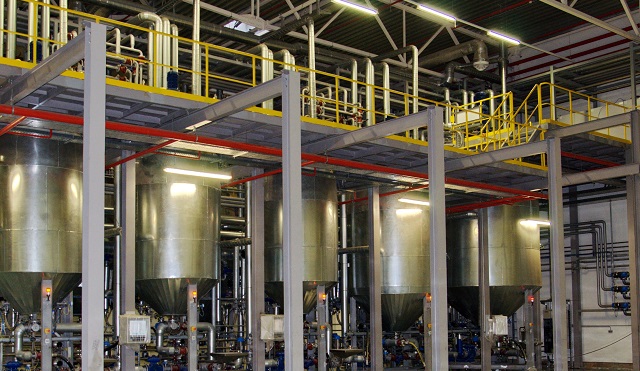When Royal Dutch Shell and Fuchs Petrolub opened Russias first foreign-owned lubricant factories, in 2012 and 2013, respectively, both companies wanted to use their plants to boost sales in the giant lube market. Two and three years later, both facilities operate at fractions of capacity – a situation that some blame partly on political and economic factors.
Shell utilizes only 30 percent of its 180,000 metric tons per year blending complex in Torzhok, Tver Oblast, and Fuchs runs its 40,000 t/y plant in Kaluga, KalugaOblast, at only 20 percent, according to InfoTek, a Moscow-based consultancy.
In 2015, Shell produced 52,000 tons of finished products, while Fuchs produced just 9,000 tons, Tamara Kandelaki, head of InfoTek, told the ICIS World Base Oils and Lubricants conference held in London last month.
Sources cited several reasons for the low utilization of the plants. One of the biggest is the governments push for domestic companies and consumers to buy Russian brands from large domestic producers such as Lukoil, Gazpromneft Lubricants and Rosneft.
The international companies use imported base oils, so their finished products prices are higher than those of the Russian players on the market, said Oleg Tsvetkov, head of the lubricants department at the Moscow-based All Russia Research Institute for Oil Refining (VNII NP).
The bad economy is indeed a factor for the both companies low sales, Tsvetkov said, but their managements should definitely seek a strategic response to the countrys import substitution drive.
As result of Russias economic slowdown, Russian base oil and lubricants demand fell from 1.7 million metric tons in 2013 to around 1.5 million tons in 2014, and it stagnated around the same level in the following year, according to InfoTek.
The economic slowdown also took its toll on new car sales, which plummeted 40 percent in Russia in 2015, according to Tsvetkov. It affected Fuchs significantly, because it is oriented to supply the car assembly plants in Kaluga. In 2007, the region became a car manufacturing hub when Volkswagen Group opened a new assembly plant there. Volvo Group and PSA Peugeot Citroen followed suit and opened truck and car assembly plants in 2009 and 2010.
A Fuchs spokesperson told Lube Report that the company never planned to reach full capacity at its blending plant immediately. Our business in Russia is in line with our business plans and growing.”

Photo: Fuchs Oil Russia
Russias dire economic problems and the negative trends in the countrys lube market influenced Shells overall sales, Shell Neft Director William Kozik said earlier this year.
A Shell official told Lube Report this week that Shell never planned for the Torzhok plant to produce 180,000 t/y in 2015. He noted that the companys share of the Russian engine oil and industrial lubricants markets is steadily growing, however. And of course, the role of the Torzhok start-up in this growth is quite important. Its contribution has become especially noticeable in 2015, since under conditions of the changing market situation our local production facility has helped us to be more flexible both in supplies of quality products and price offerings.
Shell confirmed it is working on diversification of its portfolio. We started to offer mineral and synthetic lubes for gas engines aimed at the large Russian power generation industry, the official said. In 2016 we also plan to introduce to the market latest-generation lubes for commercial vehicles as well as white oils used both in cosmetic and pharmaceutical segments and in petrochemical industry.
Shell is the worlds largest lubricant marketer. In 2014 it held 12 percent of the global finished lubricant market, according to U.S.-based consultancy Kline & Co.
Fuchs is headquartered in Mannheim, Germany, and is the worlds largest independent lubricant supplier.